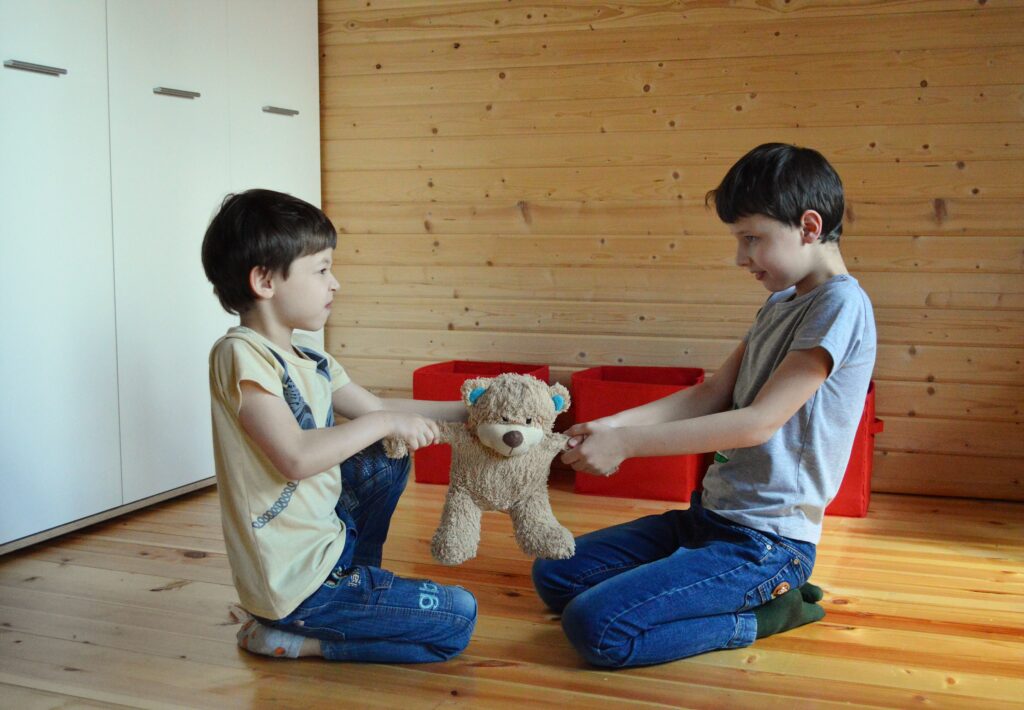 The friend who is always right (even when she’s wrong). The child who demands their own way. The boss who thinks your work is never up to scratch. Anyone of any age can have controlling tendencies and this behaviour is often deemed as a negative trait. Phrases such as ‘control freak’, ‘bossy boots’, or ‘micromanager’ don’t exactly paint the picture of an amenable and accommodating human.
The friend who is always right (even when she’s wrong). The child who demands their own way. The boss who thinks your work is never up to scratch. Anyone of any age can have controlling tendencies and this behaviour is often deemed as a negative trait. Phrases such as ‘control freak’, ‘bossy boots’, or ‘micromanager’ don’t exactly paint the picture of an amenable and accommodating human.
In a post pandemic world, the need for control feels more prevalent than ever, however, someone isn’t necessarily a “bad” person if they display a controlling disposition. Indeed, some people may not even realise their behaviour is an issue or if their personality has grown more controlling over time. We talk to Ms Ho Shee Wai, Director and Registered Psychologist of The Counselling Place in Singapore about control, how to tell if you’re dealing with a problematic person, or showing signs of being controlling yourself.
1. What are signs of controlling behaviour?
Some signs of controlling behaviours include:
- Always needing to attribute fault / blame when something happens
- Being highly critical of others / having difficulty acknowledging positive traits in others
- Having a need to avoid mistakes (by self or others)
- A need to know everything in detail
- A tendency to catastrophise
- Highly jealous
- Prone to use threats, coercion, or intimidation rather than negotiation
- An insistance on doing things your way
2. Controlling people are generally seen negatively. Is this justifiable?
A controlling person of any age tends to be someone who’s just trying to feel safe in their environment. This can come from having many bad experiences where they didn’t feel they coped. It can also be a learnt behaviour, for example, if you grew up with a parent who suffered from OCD. This personality type might be very rigid and controlled, and then they grew up imposing these rules to others in their lives.
3. Where does a need for control tend to come from?
We all face pain and suffering, be it personal, work, or relationship related. But we don’t just have pain; we agonise over painful memories, uncomfortable emotions, and difficult self-judgments. We worry about them, we dread them, we engage in all kinds of activities to avoid them. We want the suffering to be minimised. Many people believe that unless they can eliminate this pain and suffering, they cannot move onto the next step in living their lives. Therefore, they engage in controlling behaviour as an attempt to eliminate any pain that may come their way in the future.

4. How can you deal with a controlling friend or colleague?
Address their underlying concern/worry/fear. For example, is your friend worried that you won’t have time with them, so they’re always pushing to see you? Reserve a regular slot for them and let them know this. Reassure them they’re still an important person in your life. Is your colleague worried that any mistakes you make at work will impact them? Reassure them that you will clearly indicate your contribution (vs theirs) as you go along.
Take ownership and responsibility. E.g “If we have to re-do this proposal, I will put in overtime to do it, please let me have a go at doing this my way.”
Set boundaries. Clearly inform them what is possible or not possible from the start.
Express your feelings. Perhaps your friend or colleague doesn’t know they’re controlling. If you feel you can, tell them how their behaviour is impacting you. If they respond well and change their behaviour, that’s a sign the relationship can be salvaged. If not, create some space or choose to end the friendship entirely.
5. How can you deal with a controlling child?
Help them to express their underlying worry or fear, reassure them, and reframe it for them. E.g “Are you worried you will not be good in this new game? I’m sure you’ll learn it quickly like your favourite game because you have such good hand-eye coordination. I’m worried you’ll beat me in this new game once you get the hang of it.”
Offer choices to give them a sense of control and not get into a power struggle. E.g. “Do you prefer to eat your vegetable first before your favourite chip or do you prefer to do one bite of chip with one bite of vegetable (but not giving choice of not eating the vegetable)?”
Teach them to consider others’ feelings and needs. Eg. “I know you really enjoy playing on the slide. However, your sister hasn’t had a go yet. You would be sad too if you didn’t get a go after patiently waiting like she did.”
6. How do you know when your behaviour is becoming controlling?
a. You use anger and negativity to get what you want
b. Your family / friends / colleagues withdraw and stop / minimise communication with you
c. You are the default decision maker
d. You see compromise as a personal attack
e. Nothing anyone does makes you happy, even if they’re doing what you want
7. What can readers worried about their own controlling behaviours do?
Manage your anxiety. Learn and utilise relaxation techniques, observe and change your self-talk, practice mindfulness, develop tolerance for your anxiety (allowing it to stay rather than try to make it go away)
Deal with the root of the problem/ heal past hurts. Find out what has caused the feelings of unsafety and lack of belief in self-competency. Seek help from a therapist to recover and heal from the past
Learn to develop trust. Take small steps to experiment what happens when you “let go”. Take bigger steps as you develop trust in others
Try something new. Deliberately put yourself in situations where you don’t have control, and learn that you can be okay
Build genuine intimacy. When you’re controlling, you’re interacting with people the way you want or need them to be. Real intimacy requires you to find out who the other person really is and accepting them, warts and all.








